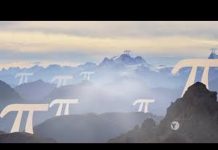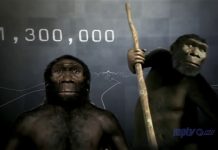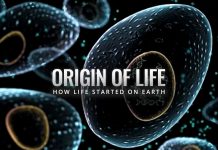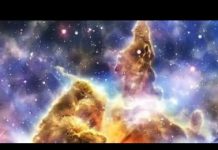Over 650 million years ago, our entire planet existed in a frozen state. So speculates the hypothesis known as Snowball Earth. The mounting evidence of this controversial phenomenon is explored in great depth in the second episode of Catastrophe series, as scientists and geologist comb the farthest reaches of the globe in search of the next clue of Earth’s rich and elusive history. The film begins in the Australian Outback. There, geologists have uncovered the existence of dropstones, a rock fragment that is thought to only occur in the presence of ice formations. How then are these dropstones detected in the middle of a desert wasteland? Geobiologist Dr. Joe Kirschvink, an esteemed researcher who first coined the phrase Snowball Earth, has located these same stones in the United States along the stretch of desert known as Death Valley. The magnetic readings of these rocks date back many hundreds of millions of years to a time when Snowball Earth theorists claim our planet was gripped by the greatest ice age in its history. “The entire Earth would have looked like Antarctica looks today,” contends Dr. Kirschvink. “Even areas as desolate as Death Valley would be under several meters of ice. The whole planet would be a snowball. “If our planet was indeed in a state of deep freeze 650 million years ago, what was the inciting incident? Ice ages which occurred before and since are explained through the rotation of the Earth and its growing distance from the thawing warmth of the sun. However, in those instances, only up to a third of the planet’s surface is thought to have been covered in ice. Snowball Earth theorists believe that the culprit behind this global freeze involved the absence of carbon dioxide, a compounds that plays the featured role in determining the temperature of our planet. How did any form of life survive such relentlessly bleak and destructive conditions? With authoritative insight, Snowball Earth investigates these and other factors which support this surprising narrative, and offers speculation on how the existence of the human species may fare should another such event occur in our planet’s future.
POPULAR PICKS
LATEST ADDITIONS
© Copyright 2017-2022 - Gratis Global Ltd. All rights reserved.

































